
Coping With Isolation: 25 Strategies for Optimizing Mental Health
At present, nearly one-third of the human population is coping with isolation and living within the guidelines of a coronavirus lockdown.
Non-essential workers spend most of their days indoors, many stores and institutions have temporarily closed, and traditional routines have been cast aside.
The widespread adjustment to isolation has mental health experts and the general public wondering, what are the best ways for coping with isolation?
Clinical Mental Health Counseling is more important now than ever before. Counselors have the necessary knowledge to create coping strategies to help support individuals in isolation.
Experts have offered suggestions that make coping with isolation easier on one’s mental health.
Astronauts, submariners, and crisis workers have shared strategies that can help the general public adjust to isolation and manage mental health concerns in times of emergency.
Learn more about how to start coping with isolation, maintain normalcy, and optimize mental health with 25 simple strategies.
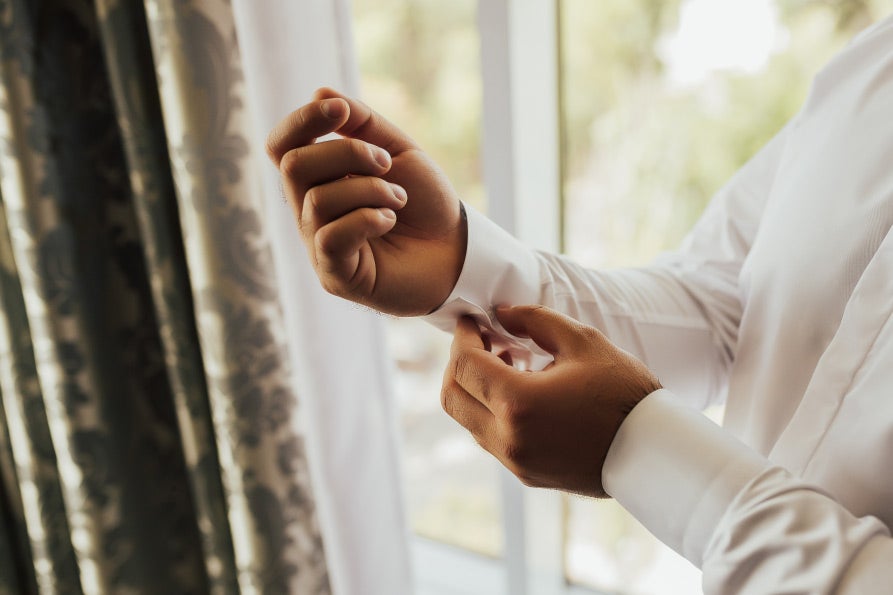
1. Shower and Get Dressed in the Morning
First things first, many health experts recommend keeping up with basic hygiene and changing into a fresh pair of clothes every day.
This strategy may seem simple, but often the simple things help people maintain normalcy during times of uncertainty.
A former anti-submarine warfare officer in the US Navy, John Rafferty spent one month in a submarine.
Rafferty said that his primary tip for coping with isolation involved getting up, showering, putting on clean clothes, and starting the day with an activity:
“I notice that that makes a really big difference.” -John Rafferty

2. Make Your Bed
On May 15, 2014, Admiral William H. McRaven addressed the graduating class of The University of Texas at Austin in his commencement speech.
This Navy Seal requested one small thing from the class of 2014: make your bed. Admiral McRaven stated,
“If you make your bed every morning you will have accomplished the first task of the day. It will give you a small sense of pride, and it will encourage you to do another task and another and another.” - William McRaven
Taking care of the details in day-to-day life are important for coping with isolation.
Making the bed is the first strategy to encourage productivity throughout the day.
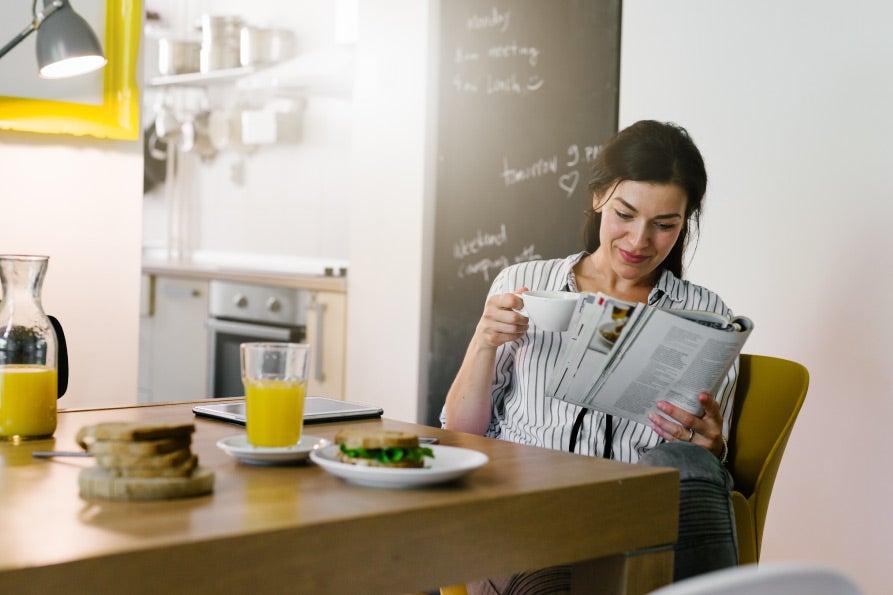
3. Establish a Daily Routine
Life outside of isolation is often dictated by a specific routine. Living in isolation can feel strange at first and throw off a normal routine. Why do humans crave routines?
Routines provide structure and stability to the day. Routines also help people form daily habits. Create a quarantine schedule to help map out your day. Break up work periods with time to relax, eat, or go for a walk.
Adding structure to a long day is essential for coping with isolation. Many clinical mental health counselors advise their patients to stick to a routine that works for them.
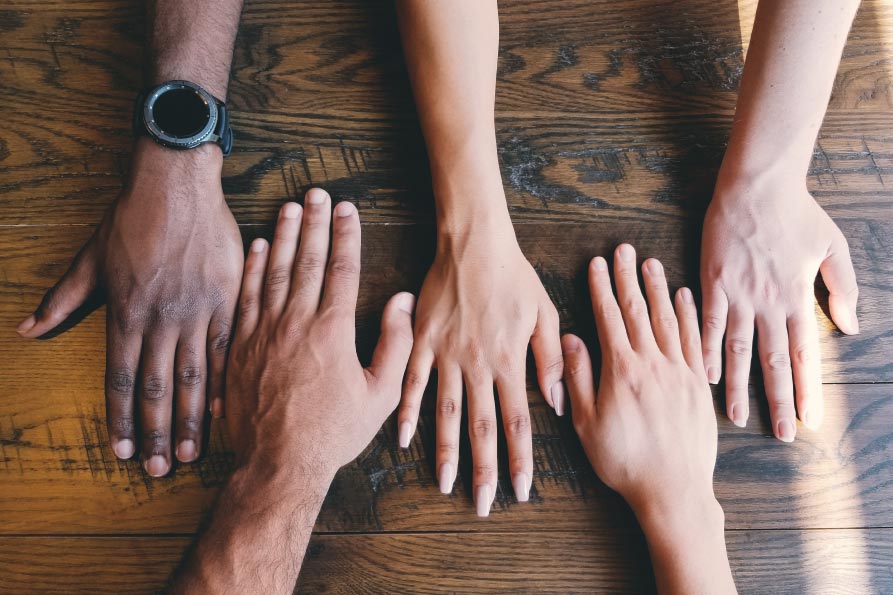
4. Support Your Community
A great way to help optimize your own mental health and improve coping with isolation is by helping others. Collective isolation has put a strain on vulnerable communities.
Demand for food banks in the United States is soaring and with a reduction in essential volunteers and donations, they need community support.
You can help support American food banks by donating to the COVID-19 response fund on Feeding America’s website.
These funds help food banks buy shelf-stable food, provide more meals, fuel mobile pantries, and purchase safety equipment. Anything helps!
You can also help by dropping off shelf-stable food at your local food bank and becoming an advocate on social media to share the message.
Another way to support your community is by helping to alleviate America’s blood supply shortage.
More than 600 blood drives across the country have been canceled due to coronavirus concerns, according to the American Red Cross.
That's about 18,000 blood donations that were never made. You can find a blood drive near you through the American Red Cross or America's Blood Centers.
Other ways you can support your community while coping with isolation include:
- Sending a food delivery to essential healthcare workers
- Volunteering as a crisis call worker
- Sharing strategies for optimizing mental health with friends and family
- Checking in with friends and family remotely

5. Set Limits on Media Consumption
Nowadays the internet is constantly at our fingertips, offering us current events from across the world in a matter of seconds.
It’s important to remain aware of the latest happenings from your government or in your area, but it’s equally important to avoid becoming overwhelmed by the news.
News channels and articles are meant to grab the viewer’s attention and can prove to be mentally exhausting.
Coping with isolation should involve limiting media consumption. Set self imposed limits that make sense for you and prevent media fatigue.
For example, set aside 20 minutes in the morning to catch up on the latest news and limit yourself to a maximum of 40 minutes of watching the news before starting your day.
Restrict news consumption before bed so you don’t increase anxiety before finishing the day.
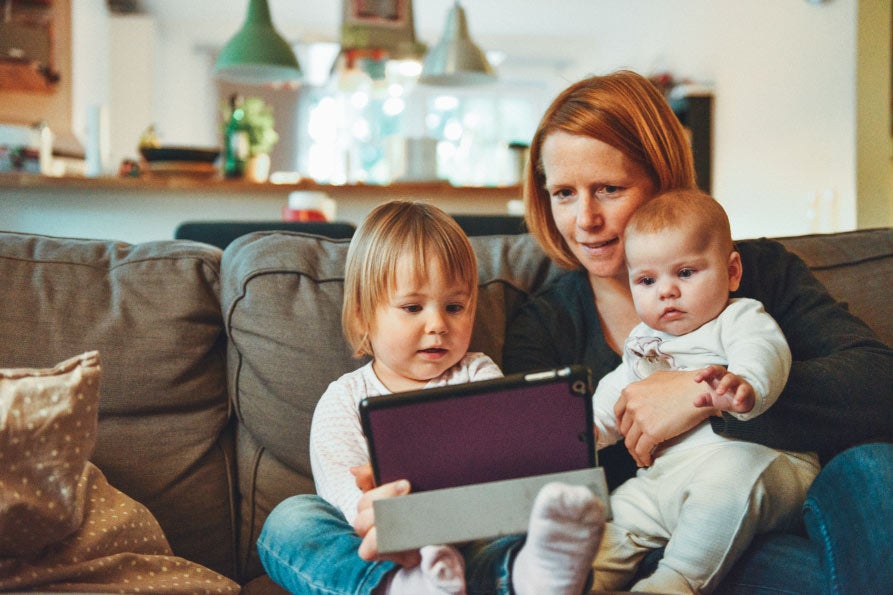
6. Stay Connected to Friends and Family
Although the government is advocating for social distancing, this doesn’t mean they’re encouraging social isolation.
There are a number of tools that can help you stay in touch with friends and family while coping with isolation.
Schedule a family Zoom call, play games with friends on Houseparty, or simply text your neighbor to see how they’re doing.
Living in isolation is a great time to reach out to a friend you haven’t spoken to in a while and foster relationships through technology.
Health experts recommend staying connected to boost mental health.

7. Stay Active
Physical activity is one of the best ways to boost mental wellness. Exercise releases feel-good chemicals like endorphins and serotonin that improve your mood and reduce stress, anxiety, and depression.
Add an at-home workout to your daily routine and balance strength training and cardio. Activities like skipping rope, low-impact HIIT training, and going for a run are excellent cardio activities that can be done from home.
Many fitness trainers offer free strength training exercises on YouTube that require no equipment. Creating a personal workout plan helps those coping with isolation to stay active consistently.
See the first 10 tips from this article in the video below.
8. Manage Health Anxiety
After the onset of COVID-19, more individuals are experiencing “health anxiety” in isolation. Health anxiety is an obsession or an irrational worry about having a serious health condition.
Illness anxiety, also known as hypochondria, can cause some individuals to imagine physical symptoms.
The most common treatment for health anxiety is engaging in Cognitive Behavior Therapy (CBT), which involves examining thoughts, quelling fears, and changing behaviors.
Learning basic CBT techniques can make coping with isolation feel more manageable for individuals with anxiety.
Clinical Mental Health Counselors are trained to advise their patients on how to add healthy CBT strategies to their daily life to alleviate anxiety.

9. Keep Busy
Don’t let the days drag on. An excellent way to continue coping with isolation is to stay busy. Make a list of tasks you said you would do if you only had the time. Take a moment each day to chip away at these projects.
A few recommended activities include decluttering a space in your house like your garage, closet, or basement. Another recommended activity is starting a passion project that has taken a backseat.
The first female commander of the International Space Station (ISS), Peggy Whitson says that while on the ISS, she would do things she’d been thinking about doing if she had more time, and recommends people stuck at home in isolation do the same:
"What are the things that you would do if you had more time? Is it to read? Is it to maybe write poetry or do art? What is the thing that has been in the back of your head?" -Peggy Whitson
Keeping busy helps prevent unnecessary overthinking and can improve emotional health and mental health while coping with isolation.
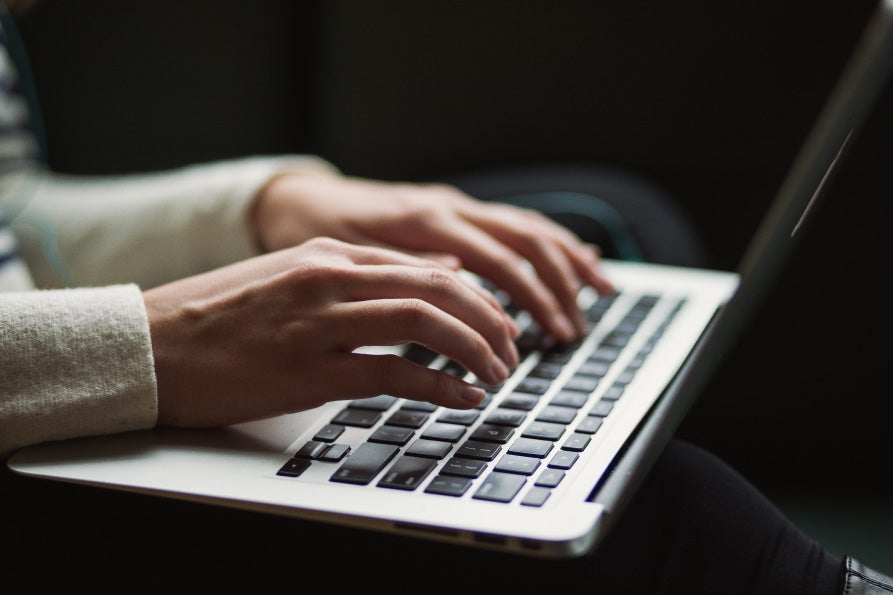
10. Try Virtual Counseling
More healthcare providers are turning to telehealth and virtual care to connect with their patients remotely.
Although living in isolation may involve avoiding hospitals, walk-in clinics, and doctor’s offices for non-essential appointments, it doesn’t mean you have to forego healthcare while coping with isolation, including mental healthcare.
It’s possible to connect with clinical mental health counselors and psychologists through a virtual care platform. According to Eva Borden, managing director of behavioral and medical solutions at Cigna,
“Almost half of all US adults will experience a mental illness in their lifetime, but only a fraction of these people actually get the behavioral health help they need.” -Eva Borden
Borden recognizes that providing behavioral health through a virtual platform can remove barriers and improve access for patients.

11. Go for a Daily Walk
If you’re able to leave the house in your local area, a great way to continue coping with isolation is to get fresh air and go for a walk everyday. Living in isolation naturally increases the risk for a sedentary lifestyle.
Walking provides the same benefits as exercise by pumping blood throughout the body, stretching muscles, boosting feel-good chemicals, and improving digestion. Wear a step tracker to keep an eye on your daily step count.
If going outdoors is not an option, you can make an effort to walk around the house or up and down the stairs regularly to increase daily steps.

12. Manage Feelings of Loneliness
One of the primary concerns around coping with isolation is how to deal with feelings of loneliness.
Loneliness is a human emotion that can be subtle for some and more intense for others, especially individuals who have dealt with abandonment or neglect in their childhood.
Psychologists recommend several strategies to help cope with feelings of loneliness.
A helpful technique includes the RAIN method:
- Recognize
- Allow
- Investigate
- Non-identification
RAIN involves first recognizing feelings of loneliness, accepting that they are showing up, investigating the thought patterns that have given rise to this emotion, and non-identification with this temporary feeling.
This technique can be used to deal with the wide spectrum of difficult human emotions such as sadness, anger, or anxiety.
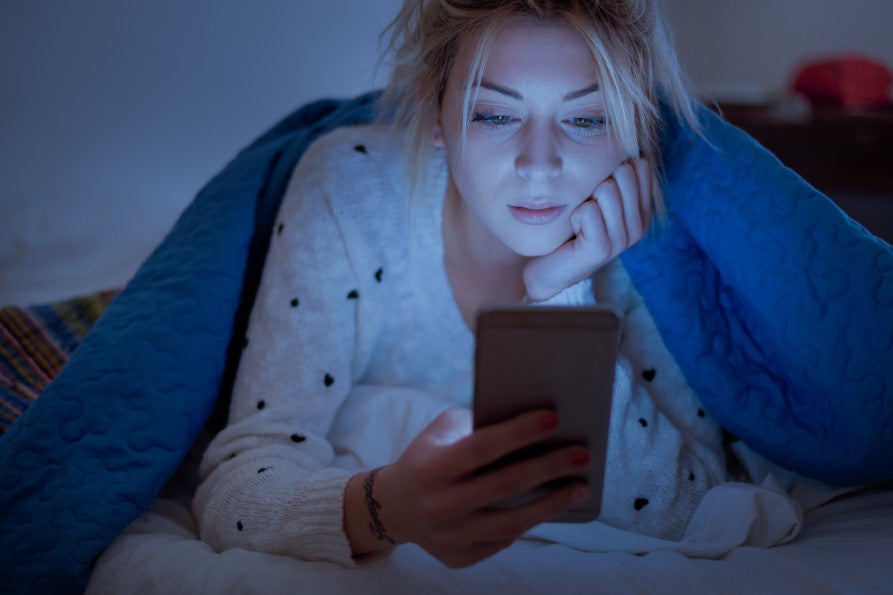
13. Limit Screen Time
Smartphones, tablets, and televisions were designed to grab our attention. It’s easy to be distracted and try coping with isolation by overusing social networking apps, Netflix shows, and video games, but spending too much time on our screens is detrimental to our mental health.
Studies have found that there is an association between screen time and lower psychological well-being among children and adolescents.
Children are especially vulnerable to the harmful effects of excessive screen time as they continue to develop and build healthy habits.
Limit your children’s screen time and your own screen time with boundaries and hourly limits while coping with isolation.

14. Engage in Prayer and Meditation
Prayer and meditation are both proven methods to encourage coping with isolation. Many places of worship are hosting virtual services and encourage parish members to join weekly mass from the comfort of their home.
Yet another important coping mechanism for optimizing mental health in isolation is meditation. It is scientifically proven to reduce stress, promote emotional wellness, reduce memory loss, manage anxiety, improve sleep, reduce chronic pain, and more.
Schedule 10-20 minutes of a silent sitting meditation first thing in the morning and before bed. Meditate every day to build mental endurance and reap the many health benefits while coping with isolation.
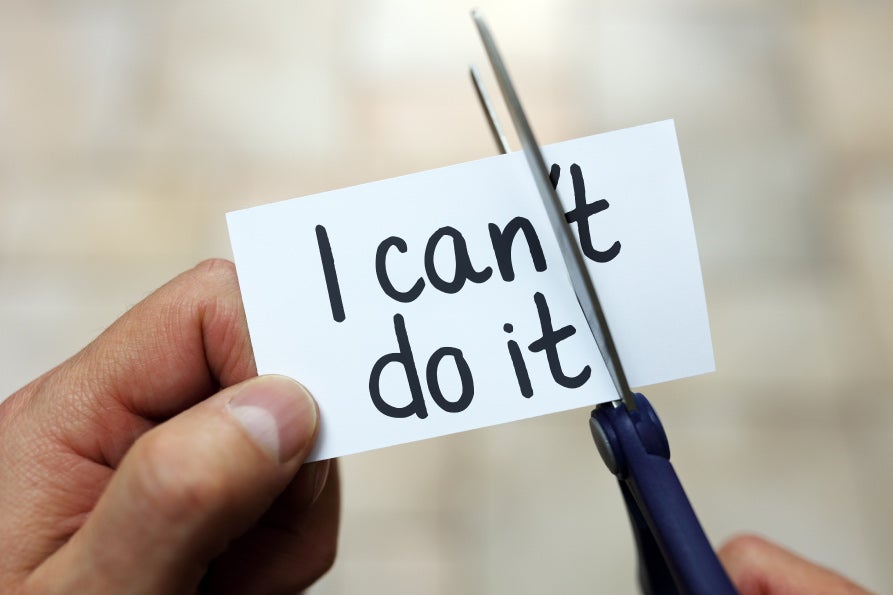
15. Balance Negative Thought Patterns
Overthinking can have detrimental effects on mental health. According to experts, humans think approximately 12,000 to 60,000 thoughts per day and an estimated 80% of these thoughts are negative.
It’s likely that people prone to overthinking may find their thoughts even more active while coping with isolation. Cognitive Behavioral Therapists recommend that you reframe these negative thought patterns by balancing them.
To balance your negative thoughts, first jot down all your repetitive negative thoughts patterns on a piece of paper. On this same paper, write down one related positive thought beside each point.
For example, if you wrote down “isolation is lonely” you could write next to it, “isolation gives me time to reconnect with old friends online.” Overthinking tends to catastrophize events and exaggerate the unfavorable details of our lives.
Balancing negative thoughts with a positive dialogue can help ground you and optimize your mental health long-term.

16. Make Time for Creativity
Creativity is excellent for boosting your mood, well-being, and mental health.
Zorana Ivcevic Pringle, a research scientist at Yale Center for Emotional Intelligence, found that people who engaged in everyday forms of creativity were shown to be more open-minded, curious, persistent, positive, energetic, and intrinsically motivated by their activity.
Researchers also studied specific creative activities such as expressive writing, and found that these creative activities could actually boost the body’s immune function and help individuals turn adversity into creative growth.
Take time each day to do something creative, whether that means cooking a new recipe, painting a picture, writing in a journal, or learning a dance. Coping with isolation can actually be fun and imaginative with the right activities.

17. Stimulate Your Brain
Optimizing brain health is essential for optimizing mental health. There are many brain-stimulating activities you can engage in to help with coping with isolation.
There are a number of games that were designed to activate the brain, including crosswords and Sudoku. There is also a wide selection of applications designed to stimulate the brain.
Luminosity is a brain training app that helps users with their memory, math, vocabulary, and more.
Other activities like reading a book, taking an online course, or engaging in a stimulating intellectual conversation can activate the mind and improve brain function.
18. Eat Healthy, Regular Meals
Coping with isolation can be as simple as eating healthy, regular meals. A healthy diet is one of the most important lifestyle choices to optimize mental health.
Living in isolation can often mean you are tempted to take more trips to the fridge or snack throughout the day. It’s important to avoid overeating and stick to regular meals to create normalcy and regulate body weight over time.
Eat a diet rich in fruits, vegetables, nuts, and legumes and limit red meat, sugary drinks, nutrient-deficient snacks, or simple carbohydrates.
Nourishing your body with nutrient-rich foods can help boost your energy, mood, and cognition.

19. Limit Alcohol Consumption
The WHO warns the general public that alcohol consumption is an “unhelpful strategy” to combat stress when coping with isolation.
The WHO states that alcohol is known to increase the symptoms of panic and anxiety disorders, depression and other mental disorders, and the risk of family and domestic violence.
They also recognize that alcohol consumption can often increase during self-isolation. Alcohol may temporarily alleviate feelings of loneliness or boredom, but alcohol can inflate these feelings in the long-term.
It’s important to turn to the selection of positive coping mechanisms for mental health rather than relying heavily on alcohol consumption to try coping with isolation.

20. Start a Gratitude List
Gratitude is scientifically proven to enhance empathy, improve self-esteem, increase mental strength, and boost physical and psychological health.
Starting a gratitude list is a great way to continue coping with isolation. A gratitude list is a comprehensive list of all the people, objects, opportunities, and attributes you are thankful for.
If this feels challenging, start with small items such as the gift of eyesight, the ability to wake up in the morning for a new day, and extend this list to include other loved ones, like parents, children, and close friends.
Many people report feeling improvements in their mood and energy levels after completing a gratitude list every day.
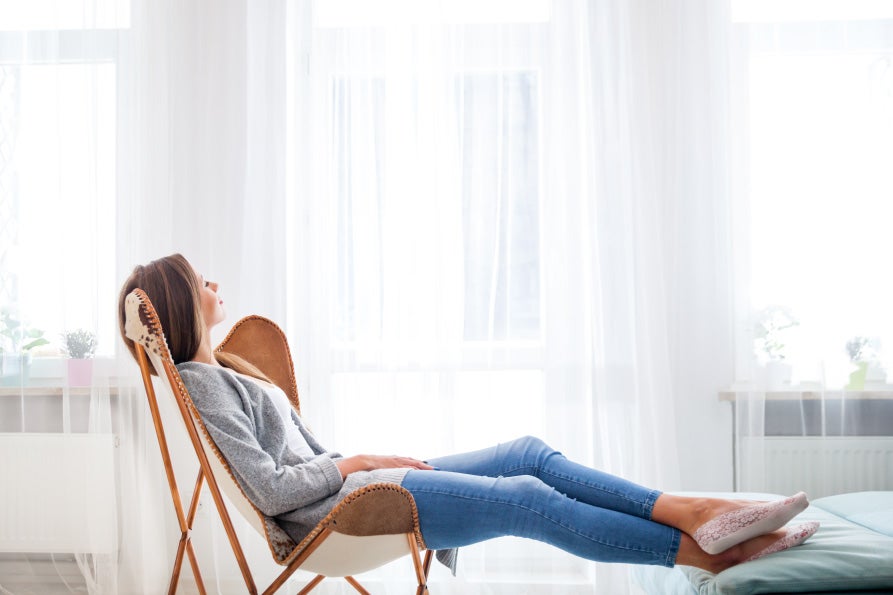
21. Reduce Productivity Pressure
Living in isolation means that many people have more time in the day with a reduction in transportation and in-person obligations.
However, this has created a dialogue online that demands constant productivity. It’s common to feel a sense of “productivity pressure” while coping with isolation.
Examine the expectations you may have set for yourself and determine if your desirable productivity is realistic or overly demanding.
Living in isolation does not mean you have to write a full-length novel, become an expert chef, or create a viral video.
Release demanding expectations to alleviate stress induced by productivity pressure.
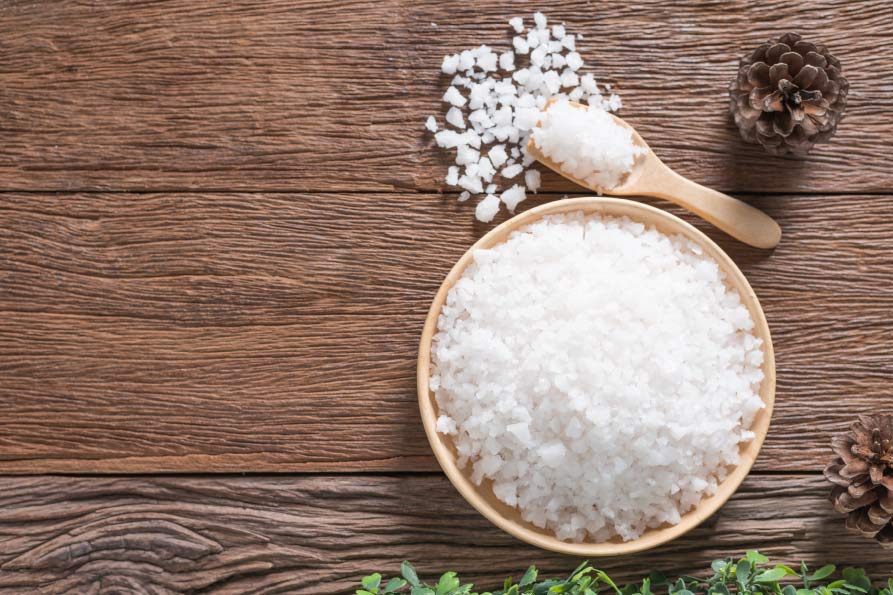
22. Take an Epsom Salt Bath
Mental health care can often involve simple self care rituals. Take time in isolation to unwind and have an epsom salt bath.
Epsom salt is rich in magnesium and capable of relaxing the muscles, reducing chronic pain, and promoting a longer, deeper sleep.
If you’re unable to hop into the bath, create an at-home spa day and nourish your skin, hair, and body with lavender-scented products.
Lavender promotes relaxation, reduces anxiety, and also encourages better sleep.
Taking time to slow down is an excellent way to optimize mental health when coping with isolation.

23. Ask for Financial Assistance
One of the largest stressors for Americans today is the state of their financial health and wellness. Financial stress can take a toll on overall mental health.
Many individuals have experienced job losses or reduced wages due to isolation restrictions and the economic ripple effect.
The best way to deal with financial concerns is to create a financial plan and ask for financial assistance when necessary.
The government is providing financial assistance plans for Americans seeking support.
Coping with isolation isn’t always easy but asking for help makes things easier. Visit the government website to explore financial assistance programs.

24. Make Plans for the Future
Life in isolation can also come with a degree of uncertainty about the future and anxiety around the timeline.
An important strategy for coping with isolation is to acknowledge that the isolation will not last forever and your circumstances will change.
Make plans for the future to create a sense of certainty that life goes on. Although you may need to move plans around to accommodate timelines that remain out of your control, having a list of exciting future plans can infuse each day with normalcy and hope.

25. Call a Crisis Hotline
Mental health is a serious matter and should be treated as such. If you or someone you know is suicidal or in emotional distress, contact the National Suicide Prevention Lifeline. Trained crisis workers are available to talk 24 hours a day, 7 days a week.
Your confidential and toll-free call goes to the nearest crisis center in the Lifeline national network. These centers provide crisis counseling and mental health referrals that can assist those coping with isolation.
National Suicide Prevention Lifeline: 1-800-273-TALK (8255)

Help Others Optimize Their Mental Health and Cope With Isolation
Are you passionate about helping others improve their mental well-being and manage mental illness through healthy coping mechanisms?
Expand in your field with St. Bonaventure University’s Online Master of Science in Education Clinical Mental Health Counseling degree.
A Mental Health Counseling degree equips you with the necessary tools to support individuals, families, and groups coping with isolation in overcoming personal challenges and accomplishing their goals.
The Counseling Center staff at St. Bonaventure University has given students a wealth of healthcare tips for coping with isolation during COVID-19, stressing the importance of staying well physically, mentally and spiritually.
Discover St. Bonaventure University’s Online MS in Education Clinical Mental Health Counseling

